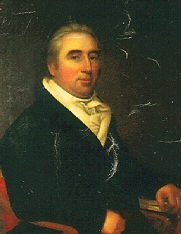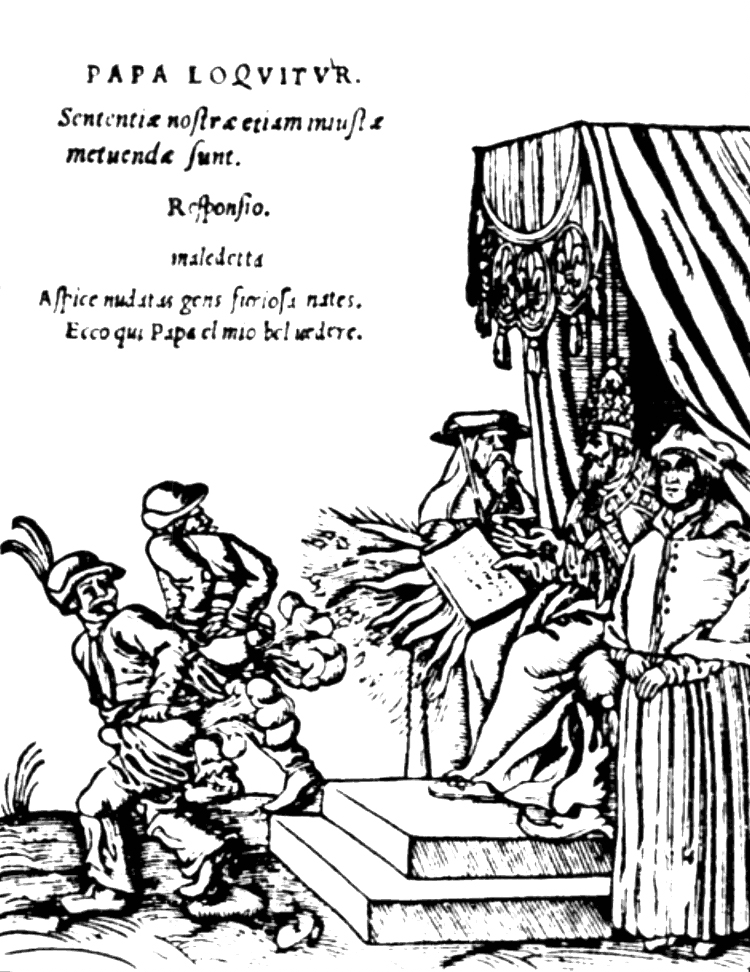 Well, this sounds dull. On February 24 back in 1803 William Marbury’s petition to the U.S. Supreme Court for a writ of mandamus to force the Secretary of State to deliver his Justice of the Peace commission was rejected on the grounds that the Judiciary Act of 1789 was contrary to the original jurisdiction provisions of Article III of the Constitution.
Well, this sounds dull. On February 24 back in 1803 William Marbury’s petition to the U.S. Supreme Court for a writ of mandamus to force the Secretary of State to deliver his Justice of the Peace commission was rejected on the grounds that the Judiciary Act of 1789 was contrary to the original jurisdiction provisions of Article III of the Constitution.
Zzzzzzzzzzzzzzzzzzzzzzzzzz.
Actually that paragraph was really exciting and important. No, really. Because the case, Marbury v. Madison, established that the United States Supreme Court could strike down laws that were contrary to the Constitution.
Well duh, you might say. But it’s neither dull nor duh. Because the operation of the United States Constitution we now take for granted, with three separate and equal branches, was by no means a certainty before this case or, indeed, in the immediate aftermath.
There were those, most prominently and even hysterically Thomas Jefferson, who denied that judges should be able to strike down laws. They would, he feared, make what James I had earlier called “shipman’s hose” of the laws if given this power. And certainly in our day judges have gone from striking down unconstitutional laws to inventing laws and constitutional provisions in a way that threatens the separation of powers, the rule of law, liberty and self-government. But none of that should be laid at the feet of Chief Justice John Marshall and his colleagues who made the pivotal ruling in Marbury.
Indeed, logically speaking I can see no alternative to their view that the entire constitution becomes shipman’s hose if laws that contradict it can nevertheless stand. But such an absurd result has indeed arisen among people who floated off into abstractions instead of grasping the necessary link between principles and practice. Indeed, the French Constitution of 1791 rigorously separated judicial, executive and legislative functions, to the point that neither legislators nor the King (still hanging in there) could exercise judicial functions and judges could neither strike down laws nor hear cases against executive branch officials related to their duties.
The result, of course, was that there was no rule of law. Whereas in the United States there is. There have been lapses, including Andrew Jackson’s infamous defiance of the Marshall court over Indian removal. And the Court has sometimes engaged in ludicrous as well as pernicious overreach, including in Dredd Scott in 1857 and Roe v. Wade in 1973. But I say again, John Marshall is not to blame.
His vision was of three equal branches, all doing their job and all checking each other. If courts in the U.S. and especially Canada are not checked, they should be, as Marshall envisioned. It’s very odd that we, in a singularly anti-American period, should have brought into our constitutional order an American element we understood so poorly that instead of making the courts too weak we made them far too strong. One more reason to regard the 1982 Constitution as a preposterous botch job.
As for John Marshall, major American historian Clinton Rossiter wrote toward the end of his book 1787 The Grand Convention that “by asserting the power of the court to ignore and thus invalidate laws judged to be unconstitutional, he put the last stone in place in the foundation of 1787. When Marshall had finished reading his opinion in Marbury v Madison on February 24, 1803, the grand convention stood at last adjourned.”
It was a monumental achievement, and an act of statesmanship which Americans and especially Canadians ought to be seeking to emulate in restoring constitutional balance.
 This one is too good to be true. It’s like something out of Tintin. Le Temple de Soleil specifically. Because on February 29 of 1504, on his fourth and final voyage, Christopher Columbus actually used his knowledge of astronomy and in particular of a coming lunar eclipse to trick the inhabitants of Jamaica into giving his starving expedition supplies by convincing them he had supernatural powers.
This one is too good to be true. It’s like something out of Tintin. Le Temple de Soleil specifically. Because on February 29 of 1504, on his fourth and final voyage, Christopher Columbus actually used his knowledge of astronomy and in particular of a coming lunar eclipse to trick the inhabitants of Jamaica into giving his starving expedition supplies by convincing them he had supernatural powers.

 On February 25 of 493 A.D. Odoacer, first king of Italy, surrenders Ravenna to Theodoric the Great and makes peace with him. At a subsequent reconciliation banquet in March, Theoderic kills Odoacer and has him sliced neatly in two. Man, if that’s how you make peace, I don’t want to be there when you make war. Or alliances.
On February 25 of 493 A.D. Odoacer, first king of Italy, surrenders Ravenna to Theodoric the Great and makes peace with him. At a subsequent reconciliation banquet in March, Theoderic kills Odoacer and has him sliced neatly in two. Man, if that’s how you make peace, I don’t want to be there when you make war. Or alliances. Well, this sounds dull. On February 24 back in 1803 William Marbury’s petition to the U.S. Supreme Court for a writ of mandamus to force the Secretary of State to deliver his Justice of the Peace commission was rejected on the grounds that the Judiciary Act of 1789 was contrary to the original jurisdiction provisions of Article III of the Constitution.
Well, this sounds dull. On February 24 back in 1803 William Marbury’s petition to the U.S. Supreme Court for a writ of mandamus to force the Secretary of State to deliver his Justice of the Peace commission was rejected on the grounds that the Judiciary Act of 1789 was contrary to the original jurisdiction provisions of Article III of the Constitution.
 On this date in history, February 22, France invaded Britain. The expedition lasted two days, culminating in the ignominiously named, and ignominious, Battle of Fishguard. The “last invasion of Britain” it was. The Norman conquest it wasn’t.
On this date in history, February 22, France invaded Britain. The expedition lasted two days, culminating in the ignominiously named, and ignominious, Battle of Fishguard. The “last invasion of Britain” it was. The Norman conquest it wasn’t.